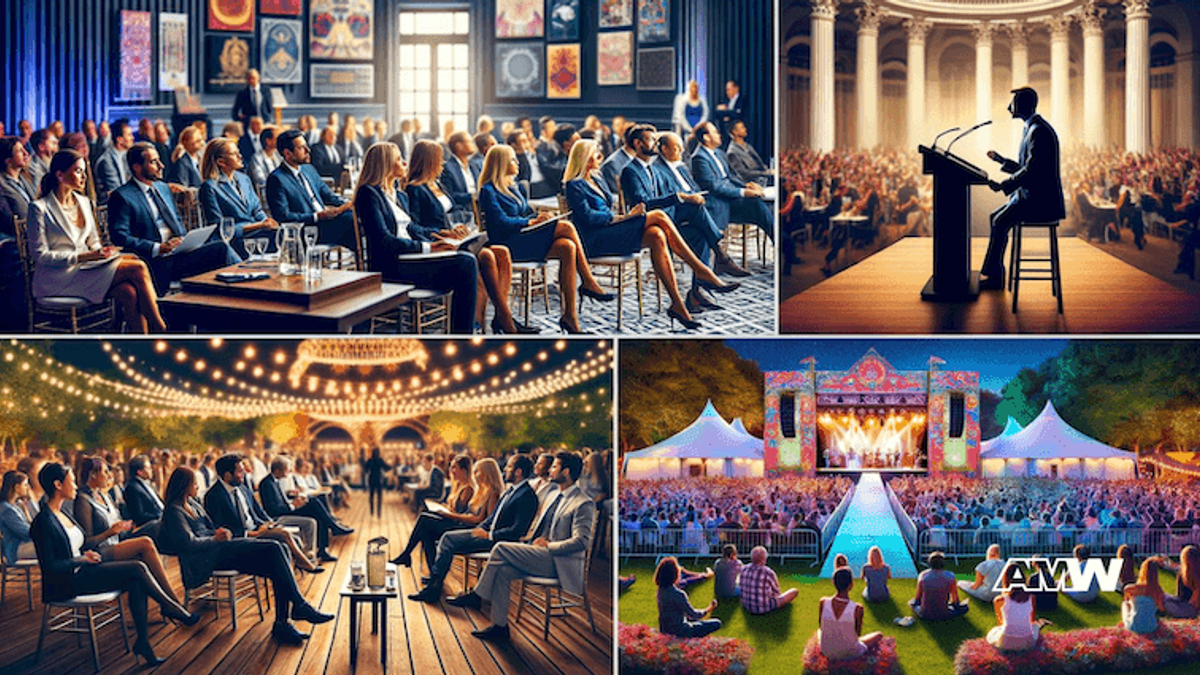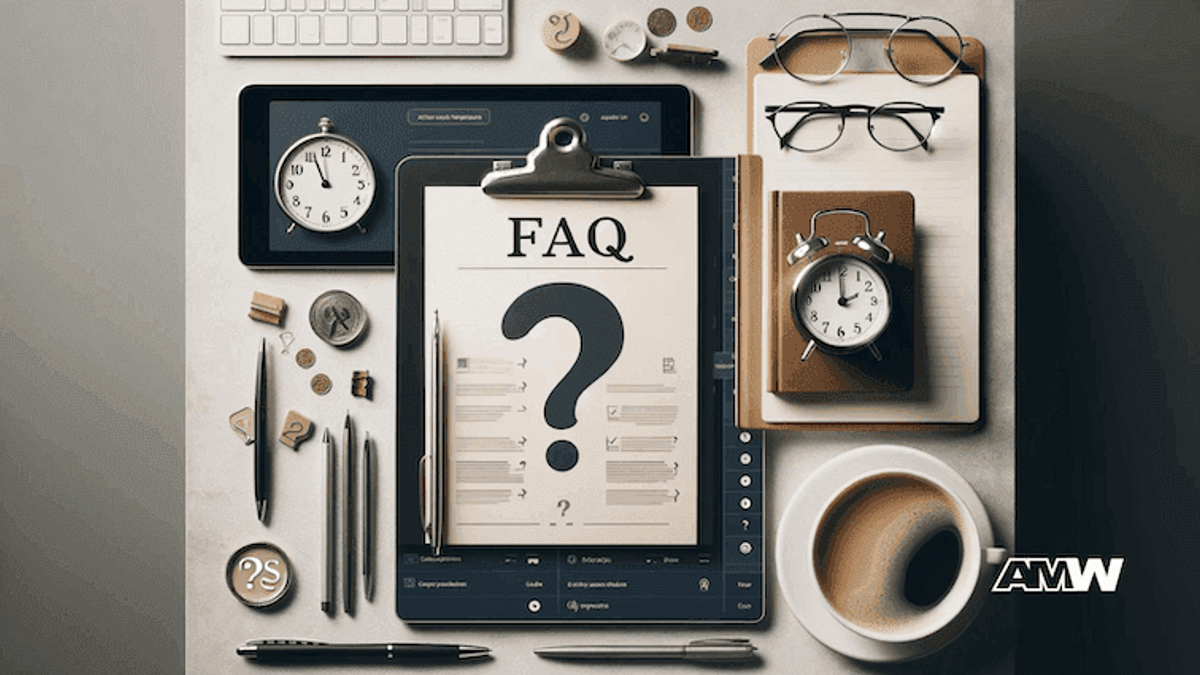The Ultimate Guide to Types of Events: From Seminars to Festivals

Events are the lifeblood of professional development, brand growth, and personal celebration. They are the stages upon which we share new ideas, foster connections, and create memorable experiences.
Quick Summary
Events serve as vital platforms for professional development, brand growth, and personal celebration, ranging from seminars to festivals. Each event type, whether it's corporate, social, or educational, fulfills specific participant objectives and fosters connections. Essential elements of successful event planning include defining purpose, budgeting, choosing the right venue, and understanding the target audience. As events evolve, they increasingly blend in-person and digital experiences, rein
This guide touches upon seminars to grand festivals, unraveling the fabric that weaves together educational sessions, corporate events, and vibrant social gatherings.
Whether you're an event planner seeking to broaden your repertoire or a professional eager to expand your network, this exploration will illuminate the spectrum of opportunities events present.
Ready to Grow Your Business?
Get a custom strategy tailored to your goals.
The Different Events Explained

Events is as broad and varied as the needs and aspirations of those who participate in them. From intimate seminars to sprawling festivals, each event type proves the human desire for connection, growth, and celebration.
Let's dive deeper into the different events, exploring how each category fulfills specific objectives and caters to its intended audience.
Seminars and Workshops
At the heart of personal and professional development are seminars and workshops. These events are pivotal for those seeking to enhance their skills or deepen their knowledge within specific fields.
Tailored to foster educational events and skill development, their structured formats—from auditorium-style seating for broad lectures to intimate smaller groups for hands-on workshops—ensure that every participant leaves with valuable knowledge and new insights.
Such gatherings are about learning and creating memorable experiences through mental challenges and team building, making them indispensable in event planning.
Conferences and Conventions

Conferences and conventions are:
- The model of networking events.
- Drawing high-level employees.
- Key business partners.
- Bringing thought leaders together in a shared space of innovation and dialogue.
Including guest speakers and panel discussions enriches the attendees' experience, turning these gatherings into crucibles of new ideas and collaborations.
These events act as catalysts, propelling industries forward and facilitating the exchange of new insights and valuable knowledge.
Trade Shows and Expos
Trade shows and expos are pivotal for lead generation and brand recognition. These event types provide a unique platform for companies to demonstrate their latest products and innovations within an event space designed to spark interest and engage potential clients and key business partners.
The focus here is on creating memorable experiences that showcase a company's strengths and position it as a leader in its sector, driving forward business goals and partnerships.
Corporate Events
The diversity within corporate events reflects the multifaceted nature of the business world. From strategic executive meetings to celebratory company parties and corporate off-sites, each corporate event is designed with specific objectives, such as employee training, team building, or launching a new brand.
These events are integral to strengthening company culture, enhancing employee training, and fostering social connections among team members.
Social Events
Social events bring a personal and celebratory dimension to the events. Whether it's a wedding, a birthday party, or an anniversary, these private events are about creating memorable experiences.
Through themed parties or intimate gatherings, they celebrate life's milestones in ways that are as unique as the individuals involved, leaving lasting memories and strengthening social connections.
Festivals, Concerts, and Fairs

Festivals, concerts, and fairs are vibrant expressions of culture and community. These events draw people together to celebrate shared interests, from food festivals that tantalize the taste buds to music festivals that resonate with the soul.
They're about more than just entertainment; they're about creating a sense of community, offering unique experiences that enrich our lives and bring joy to participants of all ages.
Charity Events and Galas
Charity events and galas embody the spirit of giving and awareness-raising. Through elegant galas, fundraisers, and community events, these gatherings aim to impact various causes significantly.
The event planning behind these events is meticulous, ensuring that every detail contributes to their success and the broader goal of making a positive difference in the world.
Virtual and Hybrid Events
The advent of virtual and hybrid events marks a significant evolution in connecting and sharing experiences.
Combining in-person and online elements, these event types offer unprecedented accessibility and flexibility, allowing participants from around the globe to join in, share insights, and foster connections.
Whether it's a webinar, a virtual conference, or a hybrid seminar, these events are reshaping the future of event management, making knowledge and interaction more inclusive than ever.
The world of events is a rich tapestry that spans a wide array of types of events, each designed to meet specific business goals, educational aspirations, or personal desires.
The possibilities are endless, from face-to-face events that build teams and forge professional relationships to live events that celebrate our shared humanity.
Event Planning Essentials

Navigating event planning demands a strategic and tailored approach, distinguishing the visionary event planner from the rest.
Within the multifaceted world of corporate events, team-building events, charity events, or private events lies the opportunity to exceed expectations, creating moments that resonate long after the last guest departs.
Setting Objectives
The cornerstone of any event is its purpose. Whether aiming to enhance brand recognition through a product launch, ignite social connections at networking events, or cultivate lead generation at trade shows, setting clear objectives is critical.
These goals serve as the North Star throughout the planning process, providing direction and a benchmark for success. They are the blueprint upon which event planners construct experiences that engage and inspire.
Budgeting
Financial understanding is key in event management. A meticulously planned budget is the foundation upon which memorable events are built, covering everything from event space rental to the latest event technology.
Smart budgeting anticipates the unexpected, ensuring the event's financial health and enabling event planners to allocate resources effectively, maximizing impact per dollar spent.
Ready to Grow Your Business?
Get a custom strategy tailored to your goals.
Selecting the Right Venue
The venue is more than a backdrop; it's an integral character in the event's story. Selecting the right venue means aligning with the event's objectives, catering to the target audience, and setting the stage for an unforgettable experience.
From the formality of a conference room for executive meetings to the casual openness of golf courses for team building, the venue choice is pivotal in bringing the event's vision to life.
Marketing the Event
Capturing the attention of your targeted audience demands a marketing strategy that resonates.
A blend of social media savvy, engaging email campaigns, and strategic partnerships with key business partners can illuminate your event's unique value.
Highlighting the central theme and what sets your event apart is essential in building anticipation and driving registrations, turning potential interest into actual attendance.
Understanding the Target Audience
The heart of every successful event beats in rhythm with the desires and needs of its audience.
A profound understanding of those you aim to serve informs every facet of the event, from thematic design to the selection of guest speakers and breakout sessions.
It's about crafting an experience that speaks directly to attendees, ensuring the event meets and soars beyond expectations, fostering meaningful social connections, and imparting valuable knowledge.
The path of the event planner is one of creativity, foresight, and unwavering dedication. It's about transforming vision into reality, turning gatherings into catalysts for memorable experiences.
Whether planning a corporate off-site, a charity gala, or a private celebration, the essence of event planning remains the same: to create moments that leave marks on the hearts and minds of all who attend.
Through meticulous planning, a keen understanding of the target audience, and a commitment to excellence, event planners can transcend the ordinary, crafting events that achieve business goals and celebrate the essence of human connection.
Success Stories

In event planning, success stories inspire, showcasing the power of innovative approaches, strategic audience engagement, and the seamless integration of technology.
These narratives celebrate achievements and offer invaluable lessons for future event planners aiming to make a significant impact in their fields. Let's delve into a few success stories that exemplify excellence in event management.
The Transformative Trade Show
At the forefront of technological advancement, a trade show has redefined the standard for lead generation and networking opportunities within the tech industry.
By harnessing the latest event technology and creating immersive product launch displays, the organizers established a dynamic platform where startups and key business partners could forge pivotal connections.
This event underscored the synergy between technology and live events, proving they can significantly amplify attendee engagement and propel business goals forward when integrated effectively.
A Corporate Retreat That Redefined Team Building
Breaking away from conventional team-building events, a multinational company orchestrated a corporate off-site that ventured into new territories of employee engagement.
Through outdoor activities, round-table discussions, and mental challenges, the event strengthened team dynamics and fostered a culture of innovation among its participants.
This initiative highlighted the effectiveness of adopting unconventional settings and activities to enhance team cohesion and employee training, setting a new benchmark for corporate events.
A Gala for Good

In a splendid display of how elegance can merge with empathy, a charity event gala demonstrated the profound impact event planners can have on societal causes.
Through carefully curated themed parties, auctions, and compelling speeches by influential guest speakers, the gala raised substantial funds and significantly heightened awareness for a noble cause.
Event planning drives social change, showcasing how well-crafted charity events can resonate with attendees long after the curtains close, creating memorable experiences that transcend the event.
Hybrid Event: The Best of Both Worlds
A pioneering hybrid event showcased the seamless blend of digital reach and the intimacy of in-person engagement.
Offering both virtual and physical attendance options, the event catered to a global target audience, breaking geographical barriers and setting a precedent for inclusivity.
This hybrid event is a shining example of the future of event types, illustrating the boundless potential of combining live events with digital platforms to foster unparalleled engagement and create memorable experiences for a diverse audience.
Through these success stories across various event types, from trade shows and corporate off-sites to charity galas and hybrid events, the essential elements of successful event planning come to light: innovation, deep audience insight, and meticulous execution.
Each story offers a perspective on achieving business goals, fostering community connections, and creating memorable experiences.
Ready to Grow Your Business?
Get a custom strategy tailored to your goals.
As event planners, embracing these principles and applying the lessons learned from these examples paves the way for transforming bold visions into vivid realities.
Conclusion

The world of events is full of opportunities, offering many ways to connect, learn, and celebrate. From the intricate planning behind corporate events to the communal joy of music festivals, each event type proves human creativity and the desire for shared experiences.
As we look toward the future, it's clear that events will continue to play a pivotal role in our lives, driven by innovations that make them more accessible, engaging, and meaningful.
There has never been a more exciting time for those looking to enter the world of event planning. Emerging trends and technologies provide a canvas for creativity and impact, inviting event planners to imagine and execute experiences that transcend traditional boundaries.
Whether you're organizing a corporate event, a charity gala, or a private celebration, the key to success lies in leveraging these trends to meet your business goals and create truly memorable experiences.
To the attendees, each event offers a unique chance to expand your horizons, forge new connections, and make lasting memories. And to the planners, every event is an opportunity to push the envelope, blending innovation with tradition to craft moments that resonate long after the last guest has departed.
Explore the myriad types of events, harness the power of emerging trends, and create experiences that achieve your objectives and leave a lasting impact on every participant.
FAQ

What types of events are there?
Events can be broadly categorized into educational, corporate, social, cultural, and virtual/hybrid events, each serving unique purposes and target audiences.
Educational events include seminars and workshops on skill development and sharing valuable knowledge.
Corporate events range from executive and board meetings to team-building events and corporate off-sites, focusing on business goals, employee training, and fostering company culture.
Social events encompass private events like weddings, birthdays, and anniversaries, creating memorable experiences through personal celebrations.
Cultural events such as music festivals, food festivals, and community events celebrate the rich tapestry of our society's traditions and innovations.
Virtual/hybrid events leverage event technology to host webinars, virtual conferences, and blended face-to-face events.
What are examples of business events?
Business events include trade shows, product launches, and corporate retreats.
Trade shows allow companies to showcase new products and services, engaging directly with potential clients and key business partners.
Product launches are crucial for introducing a new brand or product, utilizing event spaces like auditoriums or online platforms for maximum reach.
Corporate retreats focus on team building, strategic planning, and employee training, often in inspiring locations to foster creative thinking and strengthen professional bonds.
How do you plan an event for a business?
Planning a business event involves several key steps: defining clear objectives, setting a budget, selecting the right venue, and effective marketing.
Initially, event planners must understand the event's central theme and goals for networking, employee training, or product launch.
Budgeting carefully allocates funds across necessities such as event space, event technology, and catering.
Choosing a venue that aligns with the event's type and target audience is crucial, as is marketing the event through social media, email campaigns, and partnerships to ensure it reaches its intended audience and achieves its objectives.
What are examples of special events?
Special events include gala dinners, award ceremonies, and milestone celebrations. These events are characterized by their focus on celebration, recognition, and creating memorable experiences for attendees.
Gala dinners might support charity events, offering opulent settings and guest speakers to raise awareness and funds.
Award ceremonies celebrate achievements within an industry or community, while milestone celebrations such as significant anniversaries or retirements honor personal or organizational landmarks.
Each special event is meticulously planned to ensure it reflects the occasion's significance and leaves a lasting impression on its participants.
What does type of event mean?
The type of event refers to categorizing an event based on its purpose, audience, and scale. This classification helps event planners and participants understand the event's objectives, what to expect, and how to prepare.
For example, educational events aim to impart knowledge or skills, corporate events focus on achieving business-related goals, and social events celebrate personal milestones.
Understanding the type of event aids in its planning and execution, ensuring it meets the needs and expectations of its target audience and achieves its desired outcomes, whether it's fostering connections, enhancing brand image, or celebrating achievements.
Ready to Grow Your Business?
Get a custom strategy tailored to your goals.
Frequently Asked Questions
What are the main differences between seminars and conferences?
Seminars are typically smaller, focused educational events designed for skill development and knowledge sharing in specific fields. They often feature intimate settings with hands-on workshops and interactive learning. Conferences are larger-scale networking events that bring together industry thought leaders, featuring guest speakers, panel discussions, and multiple sessions. While seminars emphasize learning and skill building, conferences prioritize networking, industry insights, and broader professional development across various topics.
How do I choose the right type of event for my business goals?
Select your event type based on your primary objective. For lead generation and product showcasing, choose trade shows or expos. For team building and employee development, opt for corporate workshops or off-sites. If brand recognition and networking are priorities, conferences work best. For customer appreciation or milestone celebrations, consider corporate social events. Always align the event format with your target audience's preferences and your budget constraints to maximize ROI.
What are the benefits of hybrid events compared to in-person only events?
Hybrid events combine in-person and virtual elements, offering greater accessibility and reach to global audiences. They provide cost-effective solutions by reducing venue size requirements while maintaining engagement through event technology. Attendees gain flexibility to participate remotely, increasing overall attendance. Hybrid formats also enable better data collection and analytics, extended content lifespan through recordings, and enhanced networking opportunities through both digital and face-to-face interactions, making events more inclusive and measurable.
What should I include in my event planning budget?
A comprehensive event budget should include venue rental, catering, audio-visual equipment, marketing and promotion costs, speaker fees, staff wages, insurance, and registration technology. Don't forget decorations, signage, transportation, accommodation for speakers, and contingency funds (typically 10-20% of total budget). For virtual or hybrid events, add streaming technology, platform licensing, and technical support costs. Always track expenses against your budget throughout planning to avoid overspending and ensure financial success.
How far in advance should I start planning different types of events?
Planning timelines vary by event complexity and size. Large conferences and festivals require 6-12 months advance planning for venue booking, speaker coordination, and marketing. Corporate events and seminars typically need 2-4 months for proper preparation. Trade shows require 4-6 months due to booth design and logistics. Small workshops or team-building events can be planned 4-8 weeks ahead. Virtual events generally need 6-12 weeks. Always factor in your target audience's schedules and industry calendar when setting dates.
What are the most effective ways to market my event to increase attendance?
Effective event marketing combines multiple channels for maximum reach. Use social media platforms where your target audience is active, create engaging email campaigns with clear value propositions, and leverage partnerships with industry influencers or organizations. Develop compelling content highlighting key speakers, unique learning opportunities, or networking benefits. Offer early-bird pricing, referral incentives, and exclusive content previews. Utilize event listing websites, professional associations, and targeted digital advertising to reach qualified prospects and drive registrations.
What event technology tools are essential for successful event management?
Essential event technology includes registration platforms for seamless attendee management, mobile event apps for networking and scheduling, audio-visual equipment for presentations, and live streaming solutions for hybrid events. Consider badge printing systems, lead capture tools for trade shows, audience response systems for engagement, and social media integration platforms. For virtual components, invest in reliable video conferencing software, virtual networking tools, and analytics platforms to measure event success and attendee engagement throughout the experience.
Related Resources
Calculators
Pricing Guides
Key Terms
Marketing strategy that promotes brands, products, or services through hosted or sponsored in-person or virtual events.
Attendee AcquisitionThe marketing strategies and tactics used to attract and convert target audiences into event registrants.
Event Experience DesignHolistic approach to creating memorable, purposeful attendee journeys at events.
Attendee Acquisition StrategyPlanned approach to attracting and registering target audiences for events.
Post-Event StrategyPlanned follow-up activities that extend event value and drive business outcomes.
Related Articles

Networking Event Strategies for Introverts
Discover practical strategies for introverts to navigate and excel at networking events. Turn challenges into opportunities for meaningful connections.

Product Launch Events: Innovative Ideas That Wow Audiences
Welcome, dreamers and doers! Today, we're diving into product launch events. These are not just events but the grand stages where your product enters the spotlight, ready to dazzle the world—prepared

Top Event Management Companies: Transform Your Vision Into Unforgettable Experiences
Event management companies specialize in transforming client visions into memorable events by overseeing logistics, vendor coordination, and creative design. They cater to various events,...